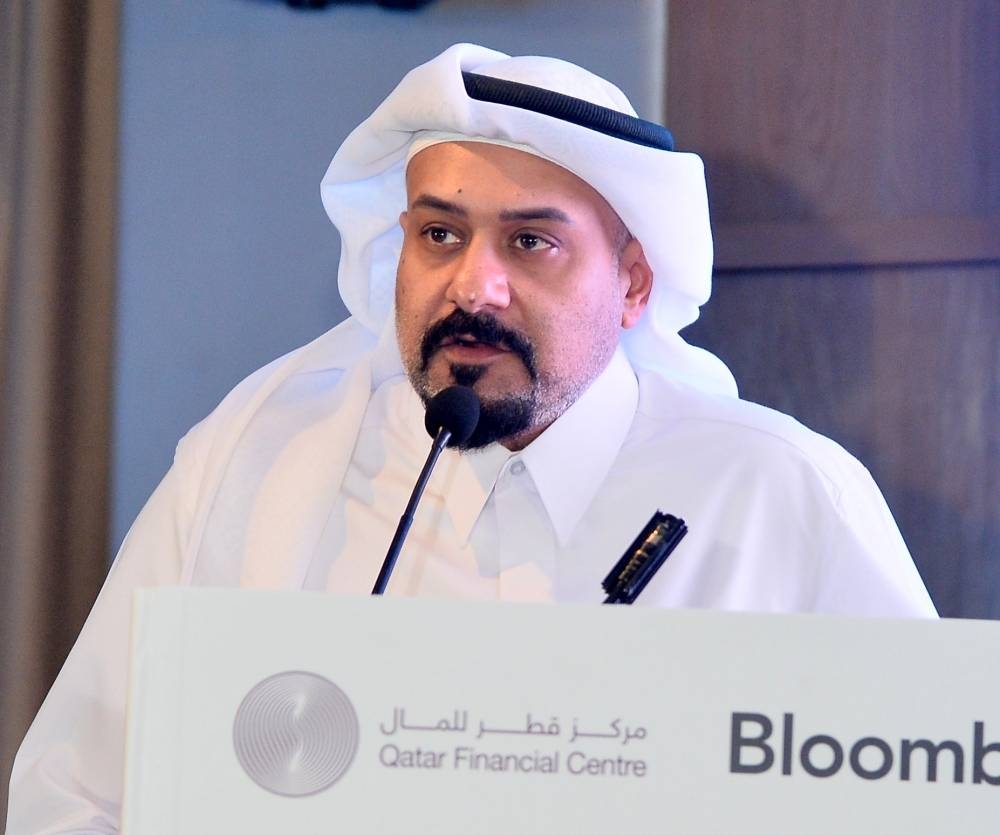Doha has embarked on an active drive to strengthen the domestic debt market in view of the "encouraging" potential for local bonds and sukuks, as the country offers $75bn investments in sustainable finance this year, according to a top official of the Qatar Financial Centre (QFC).
"There is an active drive in Qatar to strengthen the domestic debt capital market to diversify sources of funding and expand sustainable finance solutions. It is a part of a broader strategy to enhance the county’s capital market infrastructure and create a greener future in line with the Qatar National Vision 2030," QFC Authority chief executive officer Yousuf Mohamed al-Jaida Monday told Qatar Financial Market Forum.
Stressing that the country is increasingly attracting international investors to its growing equity market, he said "there is an encouraging potential for local bond and sukuk issuances."
In general, Qatari issuers have been accessing the international debt capital market since the inaugural sovereign issuance in 2003 of $700mn sukuk, marking the first-ever sovereign sukuk issuance from the region.
Highlighting that in 2020, QNB issued the country’s first-ever green bond of $600mn, an important milestone for sustainable finance development in Qatar; he said furthermore, major banks and financial stakeholders in the country are rolling out initiatives that promote sustainable banking and financing.
In this regard, he said Masraf Al Rayan recently became the first Islamic bank in Qatar to launch a sustainable finance framework, offering environment social and governance or ESG-linked funding opportunities to investors and applying those proceeds to finance ESG-compliant sustainable projects.
Masraf Al Rayan aligned its sustainable finance framework to the principles of the QFC's sustainable sukuk and bonds framework, according to him.
Qatar Development Bank introduced a three-year grace period and 20 years of repayment with discounted interest rates if borrowers meet sustainability targets, while Dukhan Bank signed a memorandum of understanding with the Gulf Organisation for Research and Development to launch a Shariah-compliant green and sustainable real estate financing programme at COP27.
Finding that by 2023, sustainable finance in Qatar is expected to offer $75bn worth investment opportunity; al-Jaida said this trend suggests significant efforts are placed in developing the local capital market and a commitment to adhering to ESG and sustainability principles to meet the growing need for sustainable financing.
Over the years, QFC and its regulator have played an integral part in Qatar’s capital market development journey, he said, adding it works with key government entities, such as Qatar Central Bank and Qatar Financial Markets Authority, to ensure regulatory alignment and the effortless execution of national financial development priorities.
In addition, the QFC is consistently improving its regulatory, legal and tax frameworks to attract and retain specialised financial players that both enable and complement the offerings of local banks, he said.
Qatar is on the path to developing a more diversified capital market. With established regulations for the governance of existing and new financial investments and continued efforts to adopt comprehensive approaches to capital market development, the country is set to establish a niche sustainable finance market, which is expected to reach a global value of more than $22tn by 2031.
Business
Qatar sustainable finance offers $75bn investment opportunity this year: QFC CEO
Doha embarks on "active" drive to strengthen its domestic debt market, says QFC Authority chief executive officer Yousuf Mohamed al-Jaida

Al-Jaida highlights sustainable finance offers $75bn investment in Qatar this year

